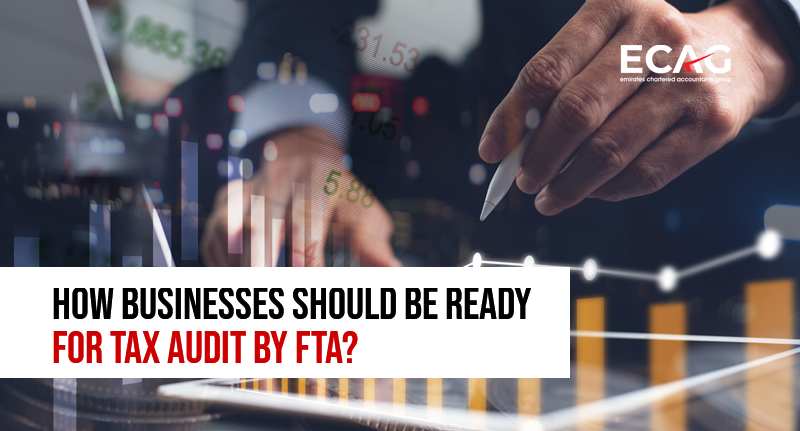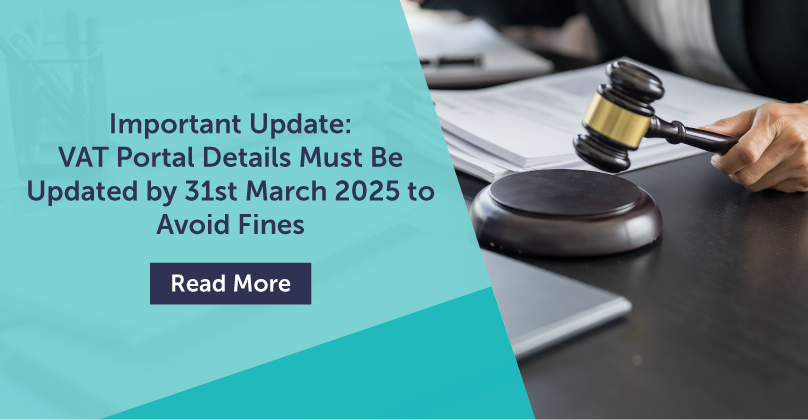
How businesses should be ready for Tax Audit by FTA?
In the UAE, Federal Tax Authority has implemented various procedures for reviewing tax compliance and for conducting tax audits at regular periods across the industries. The right for Tax Audit and the procedures for conducting tax audit is reserved for FTA by The Executive Regulation of Federal Law No. 7 of 2017 on Tax Procedures.
Since 2018, FTA is conducting regular tax audits across the UAE in all sectors and now it is expected to increase more in the coming periods. The issues or non-compliances reported in previous audits will be a reference to them in identifying the errors in similar entities or industries. With all these developments in the tax audit procedure, it is important that the taxpayer should be doing self-evaluation of the tax compliance and ensure to avoid any tax errors.
Key areas for tax audit:
Following are some key areas that the tax auditors may check to ensure compliance based on their previous experiences.
1.Reconciliation of the VAT returns with trial balance:
The VAT returns filed in each tax period is solid information available with the FTA and all the taxable and exempted supplies value will be available for them. The officer can review these details to identify if any taxable income is not reported to the VAT return or if any excess input recovery is made than actual expenses. There is also the possibility that some other income may not be reported in the VAT return and the taxes too.
Practically when companies are not having the practice of periodic closing, restricting back-dated entries, and maintaining reconciliation with returns, tax auditors can easily identify differences in the books. Such differences may be considered as taxable supply if they are mistakes in reporting or not properly identified and explained to the officer.
2. Supporting documents for export of goods
Goods exported will be considered zero-rated as per the provisions of the VAT law provided, they are supported with official and commercial documents. In existing practice in the UAE, many companies are not obtaining proper export documents mainly exit certificates for the goods exported. Reasons for the non-availability of these documents are various like not provided by the logistic company, not mandated as per customs, documents not properly collected, consolidated export is done, export in small packages, etc. But those reasons may not be accepted by the tax authorities as the VAT law requirement on official evidence is to have an export document issued by the customs authority.
In a similar case, the officer can insist the taxable person consider all export of goods as a local supply and consider the tax treatment for the local supply of those goods. Hence, it's important that businesses should ensure proper documentation to comply with the zero-rating of goods exported.
3. Review of the tax treatments
Another approach taken by the auditors is to ensure if there is any variance in the tax treatment followed by the company like standard rated reported as zero-rated or exempted, deemed supplies, or related company transactions not considered as a taxable supply, taxable supply considered as out of scope, etc. Companies from industries that are subject to different VAT rates like real estate, medical, education, transportation, electronic services, etc. may have to review the tax treatments to ensure compliance with VAT law.
4. Input recovery for expenses related to the vehicle, telephone, entertainment, and personal expenses:
Taxable persons making taxable supplies are eligible to claim the input related to the expenses for such supplies provided they have obtained the tax invoice and payment is made or agreed to make in 6 months. Some limitations on the input recovery are the vehicle, telephone, entertainment, and personal expenses. These restrictions are based on the provisions of the law or due to the probability of claiming input for personal expenses. The tax officer will review the VAT return working file along with the trial balance to identify the expense heads and will check the documentation to decide if to be disallowed from input recovery.
5. Payment proof for expenses
One important condition for input recovery is that the taxable expenses should be paid or the intention to make the payment within six months should be made by the taxable person. Hence during the audit, the tax officer may ask for payment proof like a receipt voucher from the supplier or identify the payment in a bank statement, etc to confirm the payment to the supplier. There are scenarios, in which companies may claim input on expenses without making payment to the supplier due to various reasons like disputes or long credit periods or discounts or cash flow crunch, etc. If the tax auditor identifies a scenario where input VAT is recovered without making the payment or without payment intention, then he can insist to reverse the VAT input.
What should businesses do, or is action required for VAT compliance?
It is the responsibility of the taxable entity to ensure compliance with the tax laws in the country. Also, entities should consider the approach taken by the tax auditors during tax audit and the consequences of any non-compliances including the penalties for such errors, and make necessary internal policy to adopt proper tax practices. It is advisable to have a regular review of the tax treatment and procedures followed by the company and to make necessary changes if any non-compliance is identified.
Queries related to VAT audits(FTA Audit) in UAE
CA. Ajil Varghese
Manager - Taxation
M: +971564709920
E: ajil@claemirates.com




